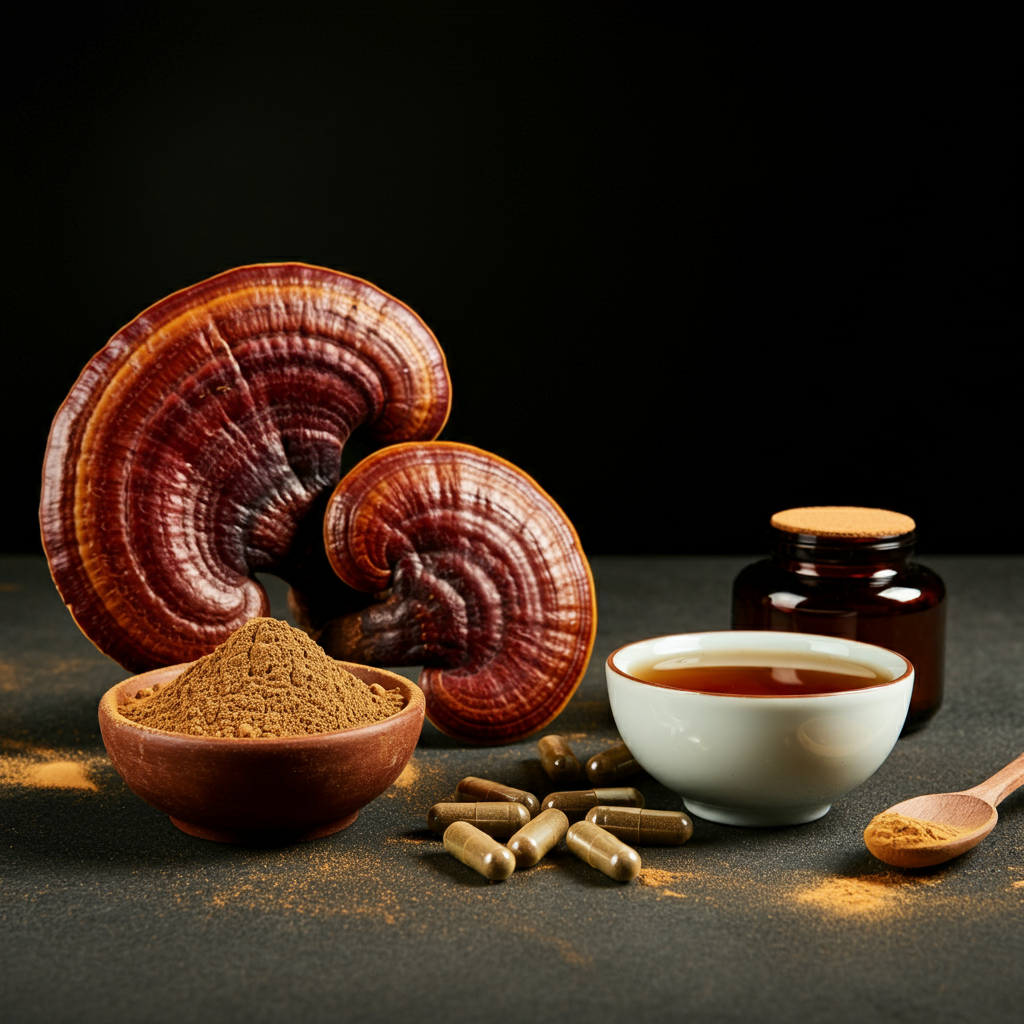
While there is speculation that caffeine could reduce the effectiveness of cordyceps, there is no solid evidence that supports this fact. Despite this, some individuals recommend not to consume them simultaneously to ensure the effectiveness of cordyceps. While this practice may have other benefits, it may not be completely neccesary to ensure the effectiveness of the product. This article discusses this speculation and why there is limited evidence that supports it.
How Does Caffeine Work and Why Would It Interfere With Cordyceps?
Caffeine is stimulating thanks to its slight resemblance to a compound we naturally produce called adenosine. Adenosine has many different functions on our bodily processes, and one of them is precisely making us feel sleepy when it comes in contact with adenosine receptors in our brain. Caffeine is considered an “adenosine antagonists”, because thanks to its similar chemical structure it also adheres to adenosine receptors. The difference is that instead of activating these receptors, it blocks them, thus preventing them from making us feel sleepy.
What does this have to do with cordyceps? Well, I’m glad you asked.
The main bioactive compound in Cordyceps militaris is Cordycepin which is very similar to adenosine and is believed to interact with the adenosine receptors. So what many individuals concluded is that since caffeine is an adenosine antagonist, perhaps it is also an antagonist towards cordycepin.
Figure Source: Hu, Zhenzhen, et al. “Cordycepin increases nonrapid eye movement sleep via adenosine receptors in rats.” Evidence-Based Complementary and Alternative Medicine 2013 (2013).
No literature examines this exact subject, but there is one that touches on it briefly. The article “Suppressing effect of cordycepin on the lipopolysaccharide-induced nitric oxide production in RAW 264.7 cells” used adenosine antagonists, including caffeine, to further understand how cordycepin functions. In their study, they showed that adenosine antagonists failed to nullify the effects of cordycepin, likely because it works independently from the adenosine receptors. They suggest the role of cordycepin is not directly tied to adenosine receptors which make you feel sleepy but with an intracellular process distinct from those antagonized by caffeine.
Some Other Quick Thoughts
Another interesting consideration made by some is that 50-100 mg of caffeine present in a single cup of coffee probably would not be enough to block all receptors. This is reflected by the fact that doses of 150, 200, and more mg of caffeine continue to have greater and greater effects. So there will still be plenty of receptors for cordycepin to bind to even if it was interacting with the same ones as caffeine.
Another thing to consider is that if cordycepin interacted with the same receptors that caffeine blocks, its likely cordycepin would also make us sleepy. If you’ve ever consumed cordyceps, you know that is far from true. I’m no neuro-scientist though, so that itself is just speculation. If you are, feel free to drop a comment.
In conclusion, further study is necessary to further understand how cordycepin functions and how it may be affected by caffeine. This being said, there is no current evidence that caffeine would significantly inhibit the effects of cordycepin.
Is It Safe To Mix Cordyceps With Coffee?
There is no known immediate health risk or contradictions between cordyceps and caffeine. Many people consume them both regularly with no negative side effects. This being said, both are powerful and anyone with existing health conditions should always consult their doctor before adding a supplement into their routine.
Recommended Brands
Below are some recommended brands with products tested for bioactive compounds. For full transparency, these are brands affiliated with the website, and we profit directly from any purchases made via this link. We only affiliate with trusted companies that are vetted for quality. While these are generally considered the gold standard in the supplement community, there are other brands with products of equal quality. If you are interested, take a look at the full supplement buying guide for more info.
Real Mushrooms are a pioneers in the mushroom supplement industry and the direct-to-consumer outlet of NAMMEX (North American Mushroom Extracts). NAMMEX is a bulk-distributer that sells to dozens of other mushroom supplement brands. Their products are made with 100% fruiting bodies, USDA Organic, and are analyzed for bioactive compounds. They maintain close relationships with their growers, their customers, and the wider mushroom community.
Nootropics Depot is a well trusted source for many different types of supplements. On top of the standard powders/capsuls, they also offer specialized extracts with higher concentrations of bioactive compounds. Their Erinamax Lion’s Mane supplement is one of the only products on the market made with mycellium derived from submerged fermentation, and standardized for the content in Erinacine A.
Purest Mushrooms is a relative new comer in the supplement market that offers high-quality extracts. Their supplier partners directly with mushroom growers to source high-quality materials. All their products are quality tested and analyzed for bioactive compounds. COAs of all their products can be found directly in their website.

No responses yet